In cooperation with the Ministry of Foreign and European Affairs of the Slovak Republic and with the support of SlovakAid, iSANS and partner institutions in Slovakia are implementing a scholarship program for Belarusians.
The program will last until December 2021 and is aimed at conveying the experience of Slovak reforms and strengthening the research and analytical skills of Belarusian fellows.
The program will also include interaction between fellows and their Slovak civil society counterparts, including through a special side event at the GLOBSEC Bratislava Forum in June.
On the YouTube channels for iSANS and Globsec, a roundtable on the launch of the program was held, attended by former Minister of Foreign Affairs of Slovakia Pavol Demeš, former Deputy Prime Minister and Minister of Finance of Slovakia Ivan Mikloš, Economic Advisor to Svetlana Tikhanovskaya Ales Alekhnovich, and EAST Center Analyst Veronika Laputko. The discussion was moderated by iSANS media expert Serge Kharytonau.
Serge Kharytonau: The Leaders of Change Program is supported by Slovak AID, the Slovak Foreign Policy Association (SFPA), Globsec, the Institute for Public Relations (IVO),and iSANS. Within the framework of this program, 10 Belarusian specialists will undergo training and study the Slovak experience of reforms. I would like to pose a question to Pavol Demeš. Why is this program being launched now? What are the expectations from the Slovak side for this program?
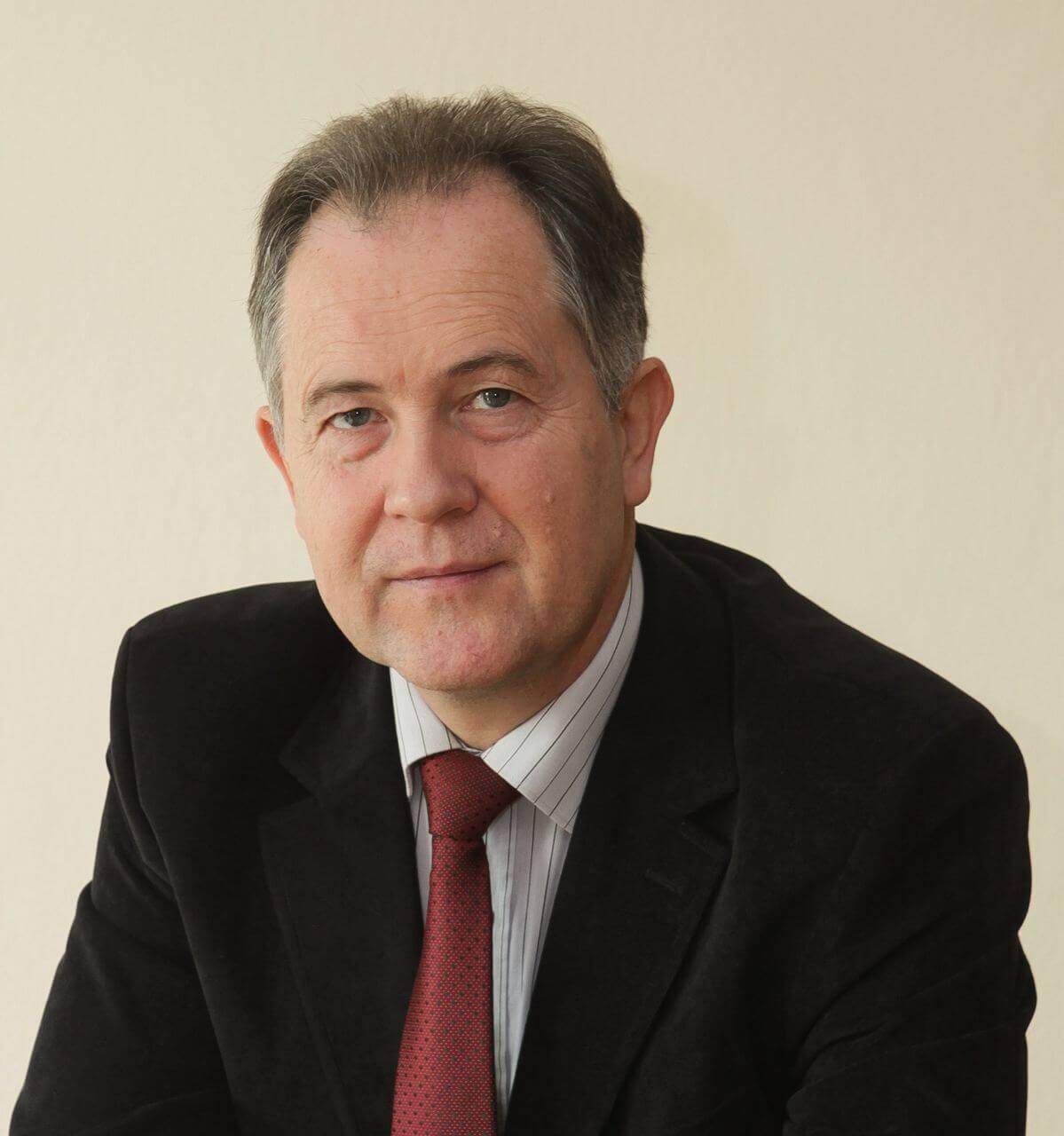
Pavol Demeš, former Minister of Foreign Affairs of Slovakia
Pavol Demeš: Slovakia, like other free and democratic European countries, wants to do something to put an end the global injustice that has been happening for decades in the countries that are our immediate neighbors. We believe that we have certain moral obligations. There is much more morality in this program than political or business considerations. The political leadership of our country – starting with the president, prime minister, and foreign minister – and everyone else is working to build ties with their partners in other countries, and in connection with what is happening today in Belarus, we are thinking how we can help. For almost 25 years now, I have been hearing that the European Union should refuse to support the Lukashenko regime through the purchase of petroleum products. But there is the issue of the EU’s political will and the issue of consensus. Some member countries will always disagree. And this program is one of those things that we, as a country, as public organizations, and as individuals, can do so that young specialists from various spheres learn the experience of reforms and how we implemented them.
After all, Belarus is your home. And what it will be like in the future is your responsibility.
We are here today with Ivan Mikloš, who is to a large extent an icon of the reforms that took place in Slovakia. Before we began them, our country was called a “black hole.” We knew that no one except us would fix this. And when the opportunity presented itself, we were ready to embark on rapid reforms and get some oxygen into our country. Because we knew that we wanted to live no worse than our neighbors, the Austrians, or any other Western country.
Therefore, this program is our modest contribution to the incredible efforts that you are making to realize your dream of a free and successful Belarus. The independence of and freedom in Belarus are critical conditions. The rest will come if they are observed. No European nation has faced the need to undertake such a difficult endeavor as the Belarusians for many decades. And with the courage shown by your people, you will always find friends and partners – not only in Slovakia, but also in many other countries of the democratic world. But this is your country. Lukashenko was created in Belarus, and not thrown in from somewhere by catapult. We see what is happening around Belarus. Russia demonstrated its methodology in Crimea, Donbass, and in the situation with Navalny. Therefore, your task is not limited to Lukashenko alone. This must be understood and acknowledged. In this regard, I hope that this program will not only equip your specialists with technical knowledge and tools, but also make them kind of messengers of hope. Hope is critical on the long and arduous road to freedom that Belarus is following.
Serge Kharytonau: Slovakia has become an example of successful reforms in the Eastern European region. We hope that the lessons from Slovakia will help Belarus build a stable government in economic and all other respects. We all understand that no reforms are possible today. But people express great hope for change, and we hope that this energy will become the force that will lead to reforms in the future. My first question to Pavol Demeš is about illusions and expectations. Some of them have crumbled. Others have become reality through reforms. What illusions can Belarusians have today, and what challenges should they be prepared for?
Pavol Demeš: We are very glad that in the difficult time of the pandemic and, in a particularly difficult period of Belarusian history, we managed to establish a bilateral dialogue with Belarus – a country for which we worry deeply. Our countries have a lot in common, but there are also differences that need to be considered when we talk about lessons learned or experiences that we could share with our Belarusian colleagues. Yes, both of our countries are new countries, and both countries are post-communist Slavic countries. We are close mentally in many ways. I have many friends from Belarus, but I am still sometimes amazed at how similar we are.
Illusions are a matter of serious concern. After the collapse of communism and the Eastern Bloc, we expected that we would develop much faster than we did. We believed that we would establish civilized rules for society and government life much faster, where the free market, democracy, human rights would form the basis for our life. We have succeeded in many respects and Slovakia is considered a successful history of transition compared to other countries. In 2004, we joined the EU and NATO. This was not only the result of the work of political leaders, but also of society in the broadest sense. Public organizations, the free press, and churches played a huge role in this. Unlike the political sector, where parties appeared and disappeared, coalitions were built and collapsed, society was always determined to reform and knew that it wanted to live like those in the West – with democracy and a free market. And in this regard, we were very lucky, because it helped to move us in this direction and build a sense of belonging to the West.
Belarus is very different in this regard. Your country is located between the West and Russia. This is an extremely difficult geopolitical situation. It is always important to understand how you identify yourself and know where you are going, how you define your goals. After all, many depend on political leaders. Our first president, Vaclav Havel, and our current president, Zuzana Čaputová, have a lot in common. Because they knew where they were leading the country and the country knew where it was headed. Alexander Lukashenko is building a brutal autocratic regime today, which is very different from what he promised in 1994 when he became president. Slovakia withdrew from Czechoslovakia, Belarus withdrew from the Soviet Union. This difference is worth considering. And when we talk about leadership, well, we need to limit ourselves only to the political sphere. We must understand it more broadly. This has been shown by the Belarusian people, who literally created Svetlana Tikhanovskaya and other leaders in the months since the presidential elections in August 2020. In recent years, Belarus has become the world leader in terms of the number of Sakharov Prizes per capita. Belarus received the Sakharov Prize for journalism – Zhanna Litvina – for civil society – Alexander Milinkevich – and now for the democratic movement – Svetlana Tikhanovskaya. This is an indicator that you have the drive and willingness endure the upcoming trials and enact necessary reforms.
Serge Kharytonau: In recent months, we have witnessed a brutal attack on the entire society. About 40,000 people were detained and subject to repression. How does this correlate with Slovakia’s experience after the collapse of communism and the Eastern Bloc?
I was among those who, seeing hundreds of thousands of people in squares all over Belarus, did not believe that Lukashenko’s regime would be able to withstand it. We were surprised that he managed to consolidate his power using such excessive force that it shocked both Belarusians and outside observers. European citizens and politicians are expressing their solidarity with the Belarusian people and leaders who have ended up in exile. Our president Zuzana Čaputová expressed her support for Svetlana Tikhanovskaya. Our discussion today is supported by Globsec, and I am in their studio. Few would have imagined such brutal actions, but it is important that a long-term vision is maintained even though such things happen. We had a similar experience during the authoritarian rule of Vladimir Mečiar in the 90s, but the actions of civil society and civic and private initiatives led to his resignation and to the fact that we were able to negotiate accession to the EU. In the case of Belarus, it is important that the leaders have and share their vision of Belarus with the people and with those who are trying to help Belarus change the political system. Therefore, our lesson is that you need to think long-term, have a long-term strategy and a clear vision that will unite political leaders, civil society and the intelligentsia, and the majority of Belarusian citizens who want to live under a normal political system. This is important to ensure that these expectations come to fruition against all odds.
Serge Kharytonau: Economic changes in post-socialist countries have been associated with negative consequences for people, including a decrease in welfare. How did this take place in Slovakia and what should Belarusians expect after the fall of the Lukashenko regime?
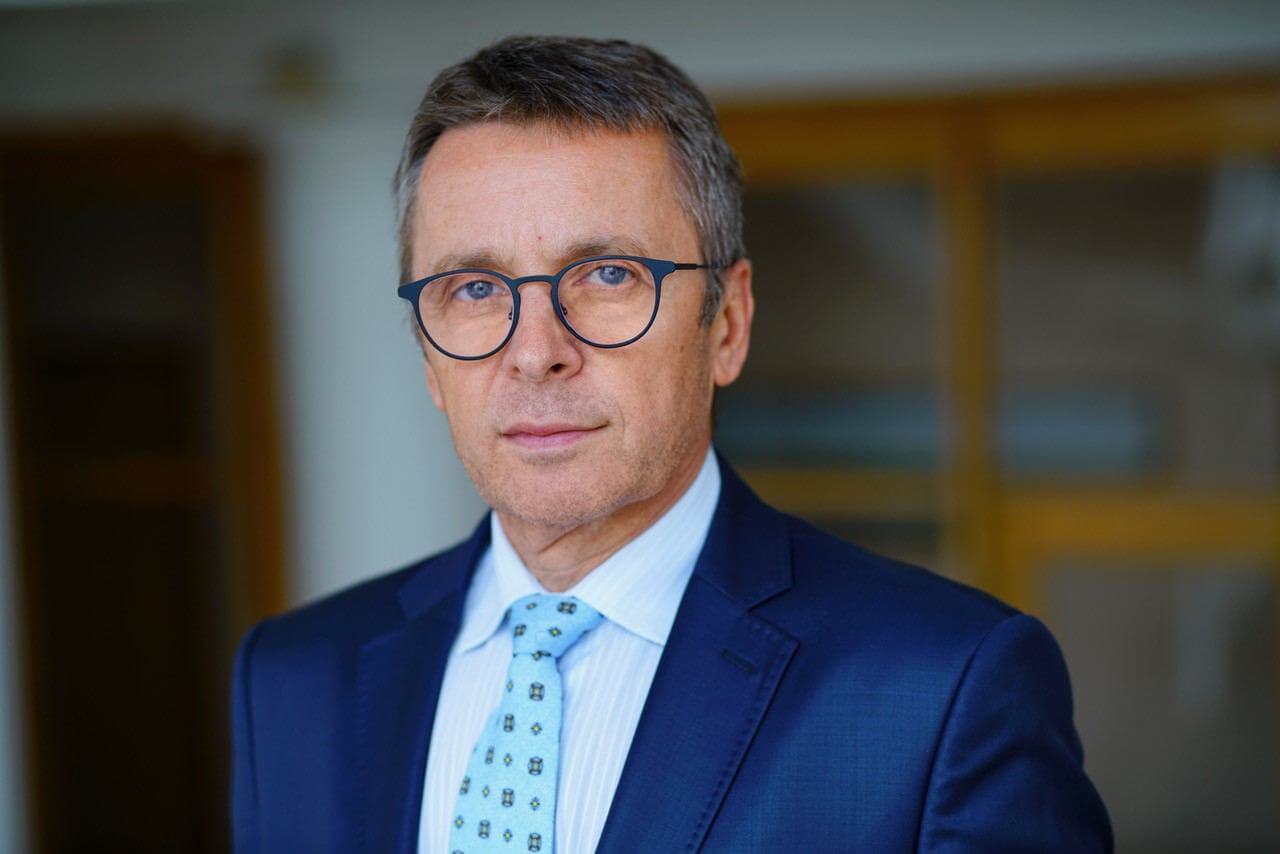
Ivan Mikloš, former Deputy Prime Minister and Minister of Finance of Slovakia
Ivan Mikloš: I would like to support Pavol’s thesis about the importance of geopolitical orientations. Today, perhaps, this is even more important than before, because today people themselves can influence whether their country will be like those that are oriented towards the West or like those countries that are oriented towards Russia. In Slovakia, there was consensus on this topic, and this helped us get through the Mečiar period with minimal losses. The threat of autocracy then mobilized a significant part of society, which saw in it an obstacle to Slovakia becoming part of the West.
In any country, changes and reforms after a long period of decline will lead to significant problems due to the fact that they are embedded in the system. This is their legacy. The reforms are aimed at solving these problems. And, of course, people expect a quick result, but instead there is a recession. It was like that everywhere. Slovakia was lucky in this regard, because the first years after the fall of communism we were part of Czechoslovakia, which in January 1991, following Poland, decided on radical reforms. Due to the onset of the recession, we lost the elections in 1992, as many were disappointed with the consequences. But when we returned to power in 1998 after the six-year rule of the Mečiar regime, what was done in the early years allowed us to move very quickly towards negotiations on EU membership. Therefore, the lesson is that reforms need to be carried out as quickly as possible, because the rule of the reformer can be much shorter than the time required for the results of reforms to appear. Another lesson is that to implement reforms quickly, they must be prepared in advance. This has a very good effect on the perception of the country externally, on its image. In the second half of the 90s, due to the rule of Mečiar, Slovakia was a very isolated country, politically and economically. There was no transparency and corruption was monstrous. Madeleine Albright then called Slovakia the black hole of Europe. That is, the situation was very difficult. But in the next 5-6 years, Slovakia became the most reformed country in Eastern Europe according to the World Bank, and the nickname of Slovakia changed from “black hole” to “tiger of reforms.” This image helped attract a lot of investment and the ability to negotiate with partners from completely different positions. People felt it, and they were pleased to be a part of a country with such an image. We were the only Visegrad Four country to introduce the euro as its currency.
Of course, it was not easy, and not everyone was happy. Many were tired of us and of reforms, but an important formula is to be ready, have strong political leadership, people who are determined to reform, and explain to people thoroughly the meaning of reforms.
Serge Kharytonau: Unlike many European countries, Belarus has a huge share of state property and enterprises under state control, which creates a unique situation where, after 30 years of independence, the country is still at the very beginning of transformation. And of course, by virtue of the context, the experience of other countries – Slovakia or Ukraine – is largely not applicable to Belarus since it is quite unique for this time and for this region. What should be the first steps of the economic team of the first government of Belarusian reformers? What should they do with state property and state-owned enterprises?
Ivan Mikloš: This is an important question, and I am very glad that Ales Alekhnovich and I are cooperating on this issue and I am glad that your future leaders are thinking about this in advance. Speaking about the experience of other countries, please do not look at Ukraine’s experience. It made tremendous progress after the victory of Euromaidan, but, unfortunately, not in the privatization of state-owned enterprises. There are still 3,500 state-owned enterprises there.
In any country, privatization is a very sensitive issue. Politically sensitive as well. Therefore, it should be conducted in the most open and transparent manner. This process should be guided by the opposition, the media, and experts. If possible, this process should be open to foreign companies as well. Of course, it is a given that some companies can be dangerous. But in general, attracting direct foreign investment is very important, and privatization is a very good way to attract it. An extremely important question is what ordinary Belarusians will gain from this process. Because these are state-owned enterprises. That is, built with their own hands. This is especially true for large businesses. Here you can take a closer look at how it was done in Estonia or Czechoslovakia, where the enterprise was opened to an international investor, but citizens became minority investors and 49% of the property was transferred to them in the form of, for example, vouchers. It was a very open and honest process.
If we are talking about the reorientation of Belarus in political and geopolitical terms, then we must not forget about the economic reorientation. This regards international trade and economic cooperation. And this is another reason why your transformation will be very difficult. But privatization and attracting foreign direct investment greatly accelerates this process and accelerates the necessary restructuring of the economy.
Serge Kharytonau: Historically, Belarusians have a fear of privatization that goes back to the 90s. There are also fears that Russia will buy up the businesses, which will strengthen its control over Belarus. How can you convince people of the need for privatization if at the word “voucher” many people start shaking with anger and fear?
Ivan Mikloš: This is the reason why I say that privatization should be as transparently open and controlled as possible. But it will not. It will be hard. This is one of the reasons why large enterprises are not privatized in Ukraine. But Belarus will not have an oligarch obstacle; those who have strong political and economic influence and oppose privatization. Ukraine also had voucher privatization in the 90s, and it was a disaster. In the Czech Republic, there are also different assessments of the results, but if we talk about the distribution of shares, then it was open, honest, and fair. This builds trust.
One can speak not only about privatization, but also about increasing the efficiency of management of state-owned enterprises. You can hire expert and advisors. You can hire managers. But personally, I find it less efficient and riskier. Privatization is a more effective way to reform corporate governance.
Serge Kharytonau: Moscow is closer to Minsk than to Bratislava, and Moscow’s influence is stronger. The key to resolving the Belarusian impasse lies largely with the Kremlin. How can the Kremlin and Putin himself be convinced to stop supporting Lukashenko? Indeed, after some confusion by the authorities in August, the second wave of violence against protesters began in September, after the Kremlin expressed public support for Lukashenko. Is it possible that the West can influence the Kremlin in this regard?
Pavol Demeš: Belarus is very close to Russia and is heavily integrated. Your special services are working together, and the military is cooperating. There are strong political and economic ties and dependence. Belarusians have many relatives in Russia, they go to Russia to work.
Russian is the state language in Belarus. I think Putin should understand that if support for Lukashenko does not stop, then in the foreseeable future Belarus will drift in the same direction as Ukraine.
It seems incredible, but if you remember the 90s, you can see a lot of parallels. People living in Eastern Ukraine spoke Russian and differed little from Russians. Russians were welcomed in Ukraine. Today Ukrainians refuse to speak Russian. They are not even allowed to enter Ukraine. This is because of the occupation of Crimea and Donbass. In Belarus – like in Ukraine in the 90s and early 2000s – there are no anti-Russian sentiments. But people see that Lukashenko is holding back the development of the country and the development of relations with neighbors. Belarus was a very developed republic of the Soviet Union. The standard of living was higher than in Poland. Today, people see what progress Poland has made, how the standard of living in the Baltic countries has increased, and a certain diffusion is taking place. Among Belarusians there is a growing understanding of the connection between the way the political system works and how people live. There is a growing understanding of how Belarus is harmed by the isolation in which the Lukashenko regime has kept it. Belarusians have shown that they want changes and are ready to make sacrifices. And when they hit a critical mass, these changes will take place, albeit against Russia’s wishes. But Russia is and will always be a factor in political and economic life in Belarus and will influence other spheres of life. We see that the European Union has declared what is happening in Belarus unacceptable. One can hope that the Biden administration will be firm and principled in their position on Belarus. But to be honest, I do not see any solutions that would be effective in the short term. There may be some support from civil society, expert assistance, but changes here will take place within Belarus. There are no external instruments of significant influence on Belarus that would be stronger than Russian influence. We must live in the real world and work with real things, so this must be acknowledged.
Serge Kharytonau: What reforms should Belarus undertake and what should be the first steps of Svetlana Tikhanovskaya’s cabinet in the event of her victorious return to the country?
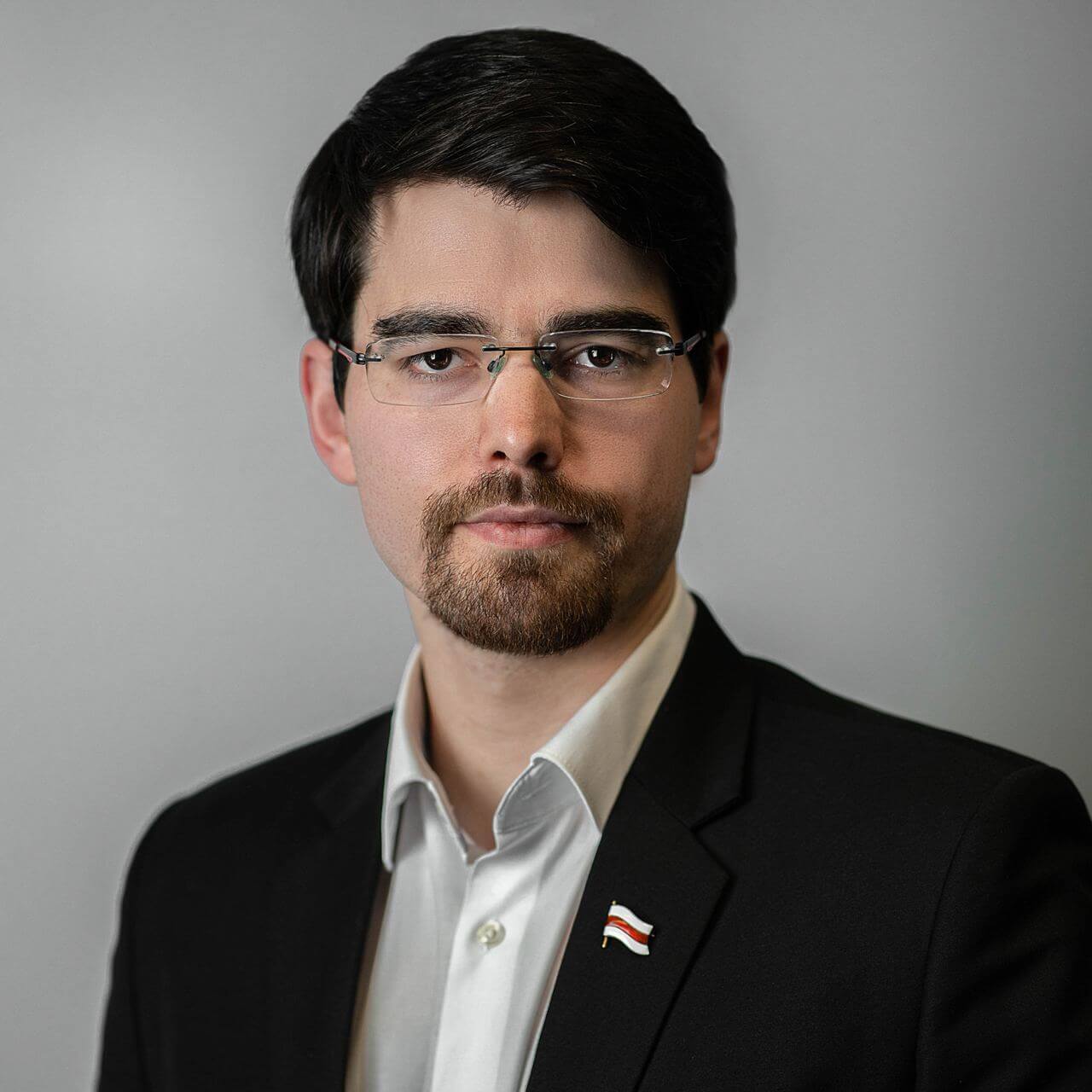
Ales Alekhnovich, economic adviser to Svetlana Tikhanovskaya
Ales Alekhnovich: In general, today the Belarusian situation in the economy cannot yet be called a catastrophe, but there are no prospects for growth. It can be said that stagnation has continued over the past ten years, because economic growth has not exceeded one percent per year, while Poland, Slovakia, and the world economy grew by 3-4%. According to forecasts for the current year, the difference between the GOST of the global and Belarusian GDP is an enormous 6%. While the World Bank predicts the growth of the world economy by 4 percent, Belarus’s is expected to decline by 2 percent. Almost all macroeconomic indicators are declining. In this situation, it is only a matter of time before the regime will lead the country’s economy to collapse. It is already clear that the regime can only rely on Russia.
I say this so that there is an understanding that in the event of political changes and the beginning of reforms, their starting point will be different from what it was in Slovakia and even different from what it is now in Belarus. But in general, there should be two reform packages in Belarus. One should include an anti-crisis program of macroeconomic stabilization, and the other should include institutional reforms. The vision for institutional reform was already announced last October and signed by over 60 economists from Belarus and other countries, including Ivan Mikloš and myself. Some of them will continued to work on and developed, including during the Slovak Aid internship program. I will name three of the most important reforms in this package. The first is not really economic, but it is of key importance to the economy – the independence of the judiciary. It is very important for Belarus to restore public confidence in state institutions and in the judicial system specifically. The second reform that determines the rest of the reform program should be the reform of social policy. Social policy and social assistance are currently not targeted. For example, people who lose their jobs receive an allowance of $10 to $20 a month. Of course, it is impossible to live on this money, and a lot of people are afraid of losing their job, even if it is a bad job. They have no savings, they cannot count on the support of the state, therefore they remain in their job. The third important reform is the reform of state-owned enterprises, which Ivan Mikloš spoke about.
Serge Kharytonau: Veronika, what political reforms should be carried out first? What steps should be taken to change the situation in the media when the market is essentially privatized and the media receiving state funding are, de facto, the mouthpieces of one person, one candidate, one politician?
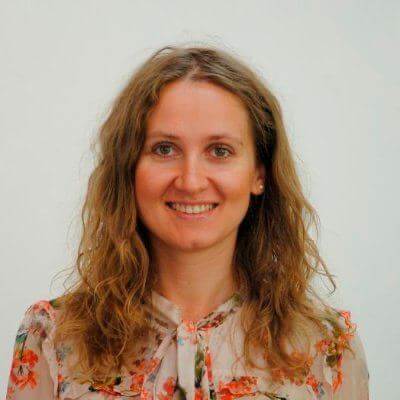
Veronika Laputko, EAST Center Analyst
I am happy that Ales said that the first thing that needs to be changed in Belarus is the judicial system. It is one of the pillars of democracy, without which no other element will work. The second, but no less important step should be the restoring of the institution of elections, which, according to nearly all monitoring organizations, have been falsified in Belarus for decades. Essentially, the institution of elections will need to be rebuilt practically from scratch, and I know that many people are now working on this.
As for the media, over the course of all these years, and especially since August 2020, they have been working practically in wartime conditions. They are priority targets for the special services, and they work despite the searches and other repressions. Of course, here Belarus will benefit from the experience of Slovakia in how to ensure freedom and independence of the media. An important part of independence is the monetization of the media, and in Slovakia these mechanisms work really well. I would like to mention Dennik N – a publication that built its work on paid subscriptions and donations from readers, and even spread its work to Czechia. An important example of the work of the Slovak media and civil society is their reaction to the murder of journalist Ján Kuciak and his fiancée Martina Kušnírová and how they were able to mobilize politicians and bring those responsible to justice. This kind of experience will be important and in demand with the beginning of a new chapter of Belarusian history. There are many more examples in Slovakia of how Belarusian society should work in the future.
Do you think there are preconditions in Belarus for the creation of a truly public television or, perhaps, a network of independent television channels following political changes?
Yes, of course. I absolutely support the idea of public television. We see how television channels are developing in Ukraine, despite the challenges. But there the restrictions set by the Council of Europe are observed and we see that it works. As Ivan Mikloš said, Belarus’s advantage over Ukraine is the absence of such influential oligarchs with those kinds of media capabilities. I think that in Belarus we will be able to avoid the issue of having the entire media space divided among oligarchs and can establish a society-controlled and transparent system of public media that will be complemented by independent and regional media. The significance of the latter has been clearly demonstrated during the last few months of protests when they also became targets for the authorities.
The full video of the conference can be viewed on the iSANS YouTube channel.
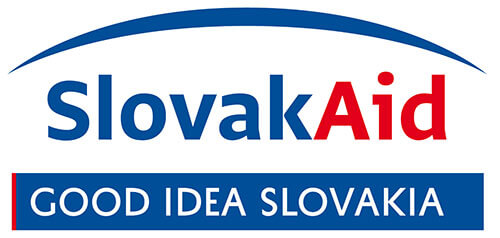
Материал доступен на русском языке: Беларусь и Словакия: ближе, чем кажется










